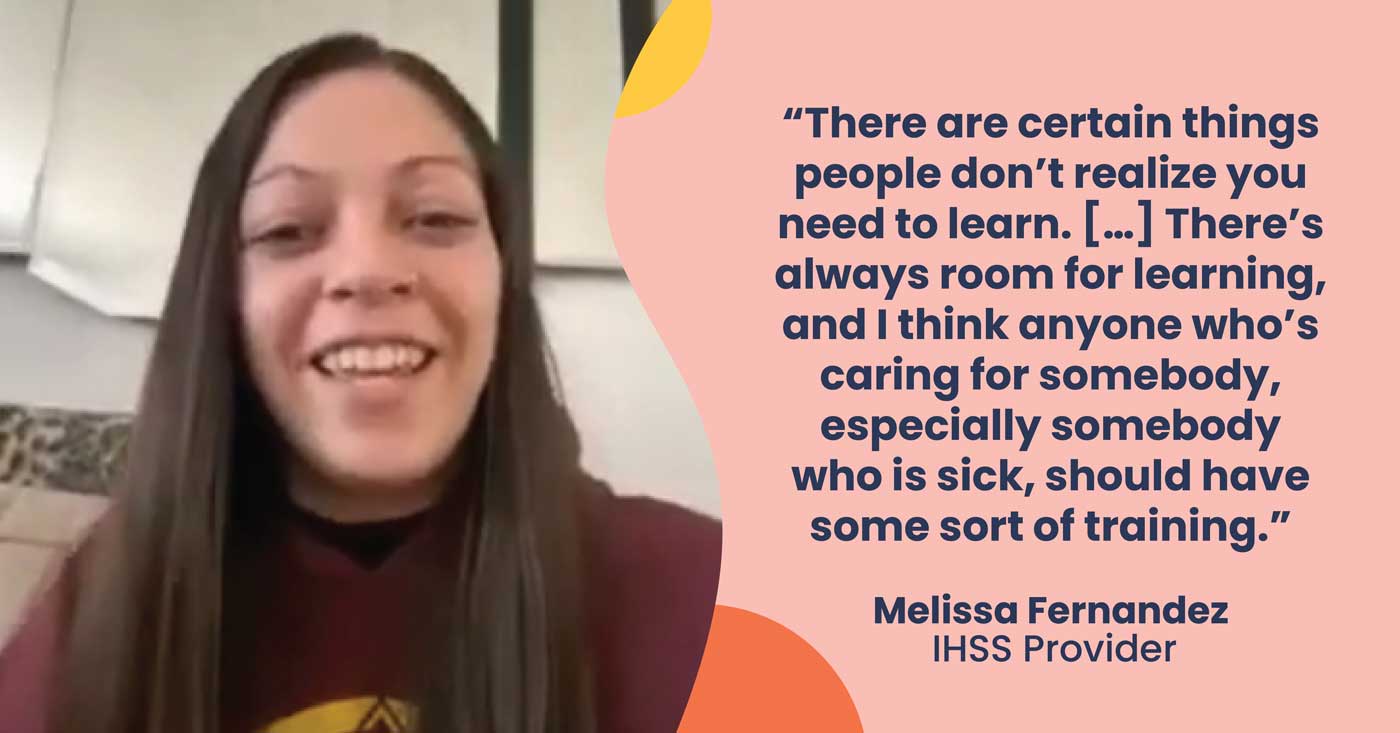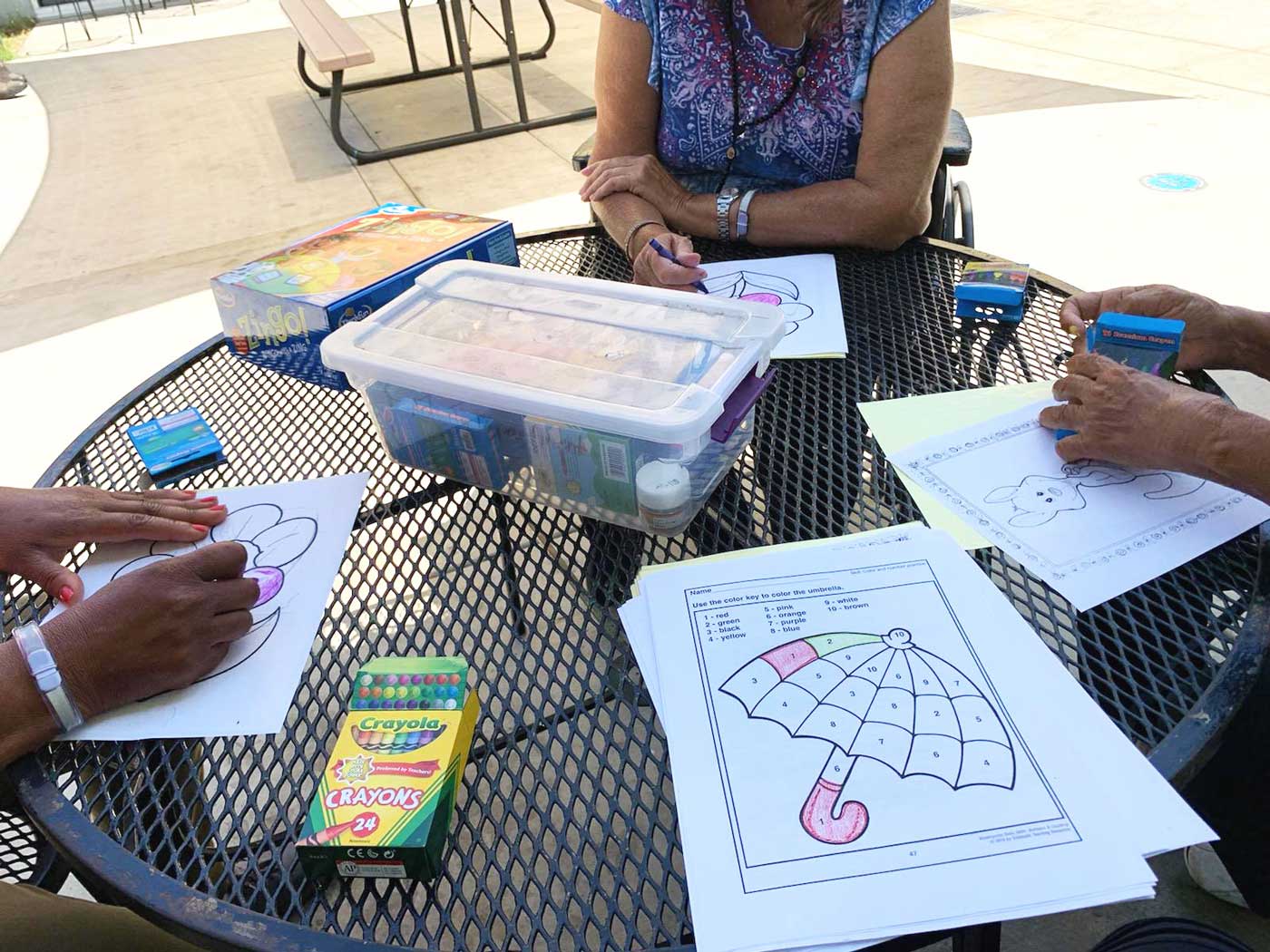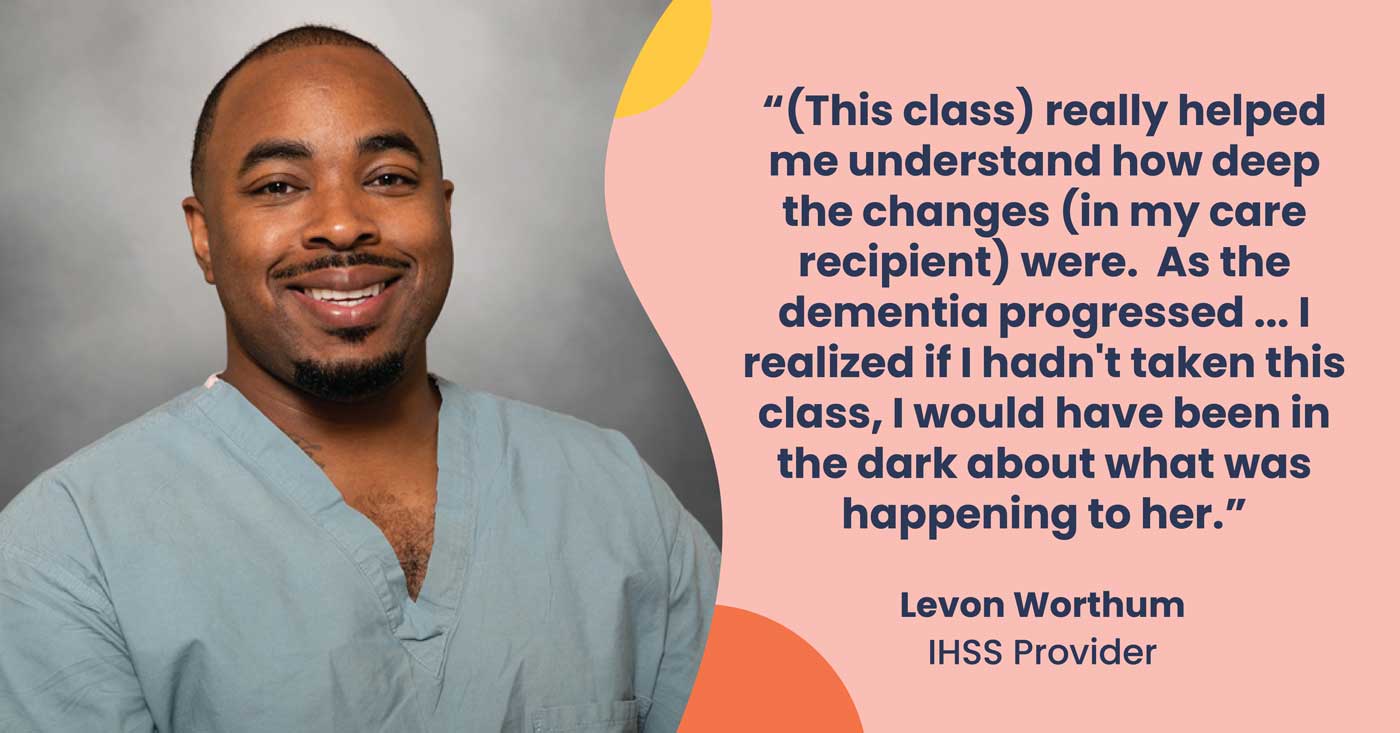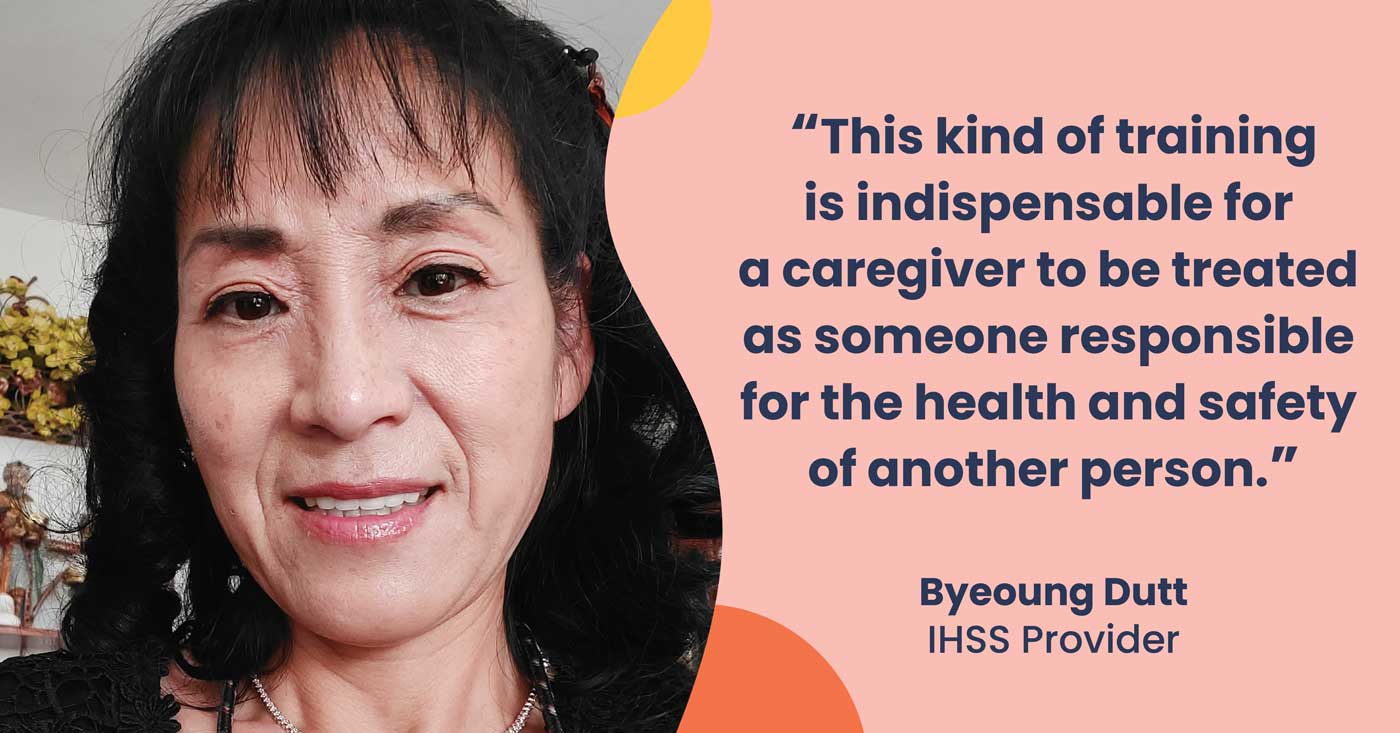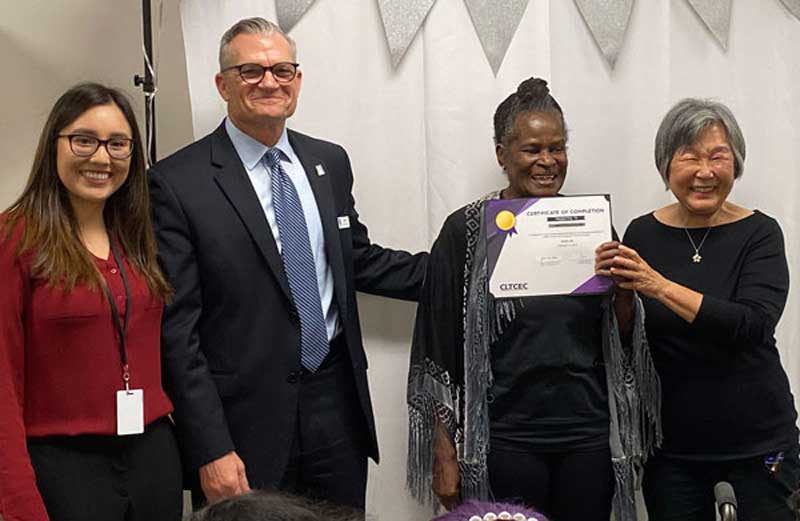Wildfires, extreme heat and power outages are now part of the way of life in California. As we have witnessed with these climate-related emergencies, and during the Covid-19 pandemic, caregivers frequently play a first-responder role. But the reality is that they do so without any formal training in how to prepare for and navigate climate-related disasters.
The Center for Caregiver Advancement (CCA) will help fill that skills gap with its Caregiver Resiliency Teams Project, a first-of-its-kind emergency training program aimed at teaching direct care workers how to prepare for, respond to, and recover from climate-related disasters.
Through a specialized curriculum focusing on emergency and disaster readiness (EDR) through the lens of climate change, caregivers will delve into the topic of environmental justice and the impact of environmental pollution on Black, Indigenous, and People of Color (BIPOC) communities. They will learn about emergency preparedness and planning for individuals with access and functional needs; disaster psychology; and stress management. The training will cover first aid; CPR; pressure bandaging; lift, carry and drag; fire suppression; evacuating and sheltering; and effective emergency communication plans.
The pilot cohort begins in March 2022. Classes will be held live via Zoom for six weeks and will be led by CCA instructors. The structure of the program builds on CCA’s successful model of multi-week modular training in different languages designed specifically for adult learners with varying levels of education. The pilot class will be offered in English, with Spanish and Korean to be added in the second cohort.
The resiliency project is funded by the High Road Training Partnership (HRTP) initiative of the California Workforce Development Board. The training will be offered to 500 In-Home Supportive Services (IHSS providers) and skilled nursing facility (SNF) workers who live and work in Los Angeles County communities designated as HRTP Priority Populations. By increasing the long-term care industry’s ability to plan for climate disasters on behalf of California’s most vulnerable communities, CCA’s project will positively impact the region’s climate resilience.
CCA will provide the training and the key partners are SEIU Local 2015, L.A. County Public Authority, and Communities for a Better Environment. Nursing home facilities participating in the training are Centinela West, Centinela Living Assistant, Centinela East, Ontario Grove and Maywood Healthcare in Los Angeles County. The partnerships developed by this project will be the first of this kind in the long-term care industry. An advisory council made up of labor, workers, and employer representatives, as well as subject matter experts and government agencies, guided the development and design of the program. IHSS providers and nursing home workers helped shape the specialized curriculum through a needs survey conducted early in the planning process.
“The COVID-19 pandemic, on top of increasingly dangerous wildfires, extreme heat, and power shutoffs, has emphasized the essential role that caregivers play each and every day, taking care of our loved ones and providing critical services that many Californians can’t live without. This HRTP grant will give us the resources to prepare hundreds of in-home supportive services (IHSS) and nursing home workers to respond to health and climate related emergencies,” said Corinne Eldridge, CCA President and CEO.
With this training, CCA and its partners are aiming for the integration of trained care workers into emergency response and disaster preparedness systems. The goal is to enhance caregivers’ skills, build their competence and confidence during emergencies, and help them build resiliency.
The California home care and SNF workforce, which is disproportionately female and foreign born, has been historically and persistently marginalized. Caregivers are faced with the legacies of structural racism and disinvestment in minority communities come to bear on how the climate-related crisis unfolds. As such, increased emergency response knowledge and the specialized skills that come with it will augment career potential and benefit their families in addition to benefiting the consumers and residents that participants care for. With these specialized skills, workers will be positioned to take advantage of advancement opportunities, which could include increased wages for working during hazard situations or specializations that include wage increases.
ABOUT THE PROJECT
The Center for Caregiver Advancement’s Caregiver Resiliency Project is part of the California Workforce Development Board’s High Road Training Partnership, which is funded through California Climate Investments, a statewide initiative that puts billions of Cap-and-Trade dollars to work reducing greenhouse gas emissions, strengthening the economy, and improving public health, and the environment — particularly in disadvantaged communities.
ABOUT CCA
The Center for Caregiver Advancement is the largest provider of training for long-term care workers in California. Our mission is to build the workforce of highly trained caregivers that many Californians can’t live without. Founded in 2000 by the long-term care workers who are now members of Service Employees International Union (SEIU) Local 2015, CCA provides quality educational opportunities to long-term care workers so they can build better lives for themselves and the consumers they serve. CCA serves two specific groups of workers: In-Home Supportive Services caregivers and nursing home workers in residential care and skilled nursing facilities.
Related Reading: CCA’s Emergency and Disaster Readiness Training Featured in the News





